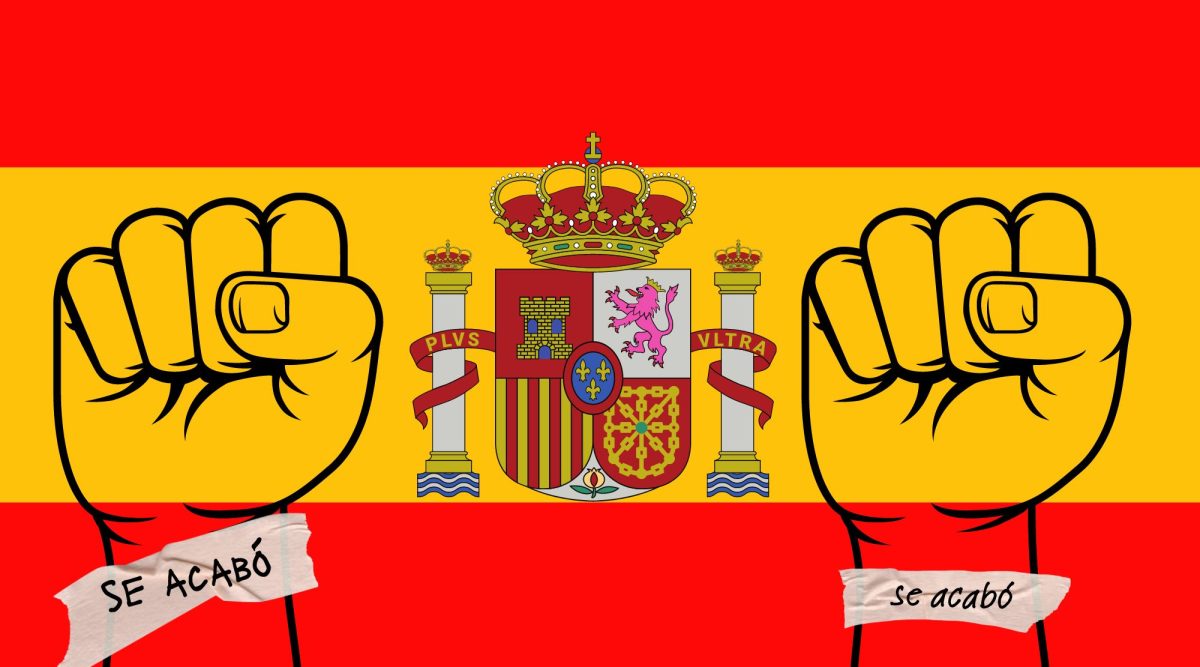Throughout July and August, the FIFA Women’s World Cup reached millions of fans across the world. Spain took home the title after beating England 1-0, yet the celebration was tainted by an act of sexual assault: President of the Spanish Federation, Luis Rubiales, kissed Spanish national player Jenni Hermoso on the lips.
When Rubiales addressed the incident, he claimed that he had asked for consent. However, Hermoso denies this claim.
“I want to make it clear that at no time did the conversation to which Mr. Luis Rubiales refers to in his address take place, and, above all, was his kiss ever consensual,” Hermoso said in a post on her Instagram account. “I want to reiterate as I did before that I did not like this incident.”
This accident is not isolated; many similar incidents have happened to other female athletes, including in Portland. In September 2021, Portland Thorns players Mana Shim and Sinead Farrelly shared their stories of sexual abuse and coercion by ex-Thorns coach Paul Riley during his time coaching the team in 2014 and 2015. This incident resulted in widespread awareness about sexual assault in women’s sports.
Varsity goalkeeper Annabel Porter expresses her frustration with these incidences of sexual assault in soccer.
“I kind of thought that the women’s soccer programs were going to be above this at this point,” said Porter. “Right after the whole thing with the Thorns and how no one stood up for the players there. I watched it live, and honestly it made my stomach hurt.”
Porter thinks this unequal power dynamic led Rubiales to think he could do whatever he wanted.
“[Luis Rubiales] is in power here, he yields the power. It’s kind of established that if you hold the power and the money, you can do whatever you want, like women are just your objects,” Porter said.
Grant Farr, a retired professor of Sports in Society at PSU, blames this on several factors relating to sports and gender.
“It brings up the issue of how men see women, and brings up the issue of how men see women in sports. It brings up the issue of equality with regards to different kinds of sports,” he said.
Porter agrees. She says society views women’s and men’s sports differently.
“I think that the first thing that we notice about women is their clothing, their personal lives,” she said. “And the first thing we notice about men is their athleticism, their talent, the sport. This has been ingrained in our brains from the time we were tiny.”
All progress in terms of gender equality in sports has been fairly recent. It wasn’t until 1970 that the Women’s World Cup even existed, despite the fact that the Men’s World Cup had been happening since 1930.
Farr sees some positive changes in how women in sports are represented in the media.
“I see stuff in the newspaper about women’s sports more than you used to. Is it equal? No, but it’s moving in that direction,” Farr said.
People across the globe have been showing their support for Hermoso through protests, social media, and by wearing armbands with the words, “se acabó” which is translated to “enough.”
“I’ve watched a lot of female athletes rally around [Jenni Hermoso], which has been really wonderful to see,” said Porter. “I watched the Swedish goalkeeper repost her statement and say, ‘I stand with you.’ I hope that this will mean that we rally the forces and [show] that we do not stand for this.”

